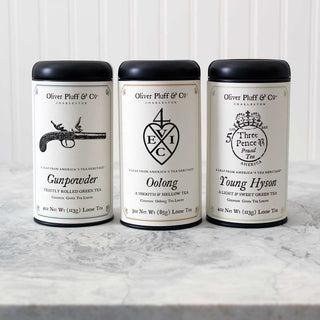Dear Oliver,
My recent research on matcha prompted me to dig a bit deeper and look into
the most current data on the health benefits of tea overall. According to the
National Library of Medicine, “the beverage tea has been considered a health-
promoting habit since ancient times. The modern medicinal research is
providing a scientific basis for this belief.
The evidence supporting the health benefits of tea drinking grows stronger with each new study that is published in the scientific literature. Tea plant ‘camellia sinensis’ has been cultivated for thousands of years and its leaves have been used for medicinal purposes.”

“Encouraging data showing cancer-preventive effects of green tea from cell-
culture, animal and human studies have emerged. Evidence is accumulating
that black tea may have similar beneficial effects. Tea consumption has also
been shown to be useful for prevention of many debilitating human diseases
that include maintenance of cardiovascular and metabolic health. Various
studies suggest that polyphenolic compounds present in green and black tea
are associated with beneficial effects.”
One very important thing to note is that these studies are specifically about
camellia sinensis, which comprises Black, Green, and Oolong tea. A myriad of
other herbals and blends are available and marketed as tea, but these are not
the same products and must be evaluated independently.
Nutritionsource, produced by the Harvard School of Public Health, reports that
“Polyphenols, or flavonoids, are likely a key component to what makes tea a
healthful drink. These chemical compounds act as antioxidants, which control
the damaging effects of free radicals in the body. Free radicals can alter DNA
by stealing its electrons, and this mutated DNA can increase LDL cholesterol
or alter cell membrane traffic—both harmful to our health.”
Which version of the three camellia sinensis options are the best is possibly a
close race, “though green tea is often believed to be richer in polyphenols than
black or oolong (red) teas, studies show that—with the exception of
decaffeinated tea—all plain teas have about the same levels of these
chemicals, albeit in different proportions. Green tea is richest in
epigallocatechin-3 gallate whereas black tea is richest in theaflavins; research
has shown that both can exert health benefits.”


As mentioned before, “herbal teas contain polyphenols as well but will vary
highly depending on its plant origin.” One striking finding is that temperature can play an important role as well. Experts suggest not drinking tea at extremely hot temperatures as these high temperatures can damage surrounding tissues leading to health problems. And, additives such as milk products, citrus, sugars, etc. all can change the chemical makeup of a cup of tea. AICR.org reports that, “proteins in dairy and soymilk do seem to bind and form a complex with tea’s polyphenol compounds,
which potentially reduce health benefits of drinking tea.
However, with black tea, the few human studies there are suggest that adding milk does not make a difference to the amount or availability of tea’s beneficial compounds. In one human trial with green tea, although ECGC, green tea’s most-researched compound, was not completely blocked, it was reduced about 30 percent.
However, the milk did not decrease the absorption of all types of catechin
polyphenols found in green tea.” Health experts point out that if you regularly use dairy in tea, there is no reason to change if you are still consuming healthy tea overall, and the milk conundrum is not set in stone, more research is definitely needed on all sorts of tea additives.
The main take away is that adding black and green tea into your diet is the best
choice according to NPR, “So heres one idea: If you prefer black tea with
milk and sugar, drink it with breakfast. Then, later in the day, try to add in
a cup of green tea — nothing added.”
I am looking forward to reading more about the benefits of tea and I will
start by adding a cup of green into my afternoon routine. I plan to try the
Oliver Pluff & Co. Young Hyson right now!


